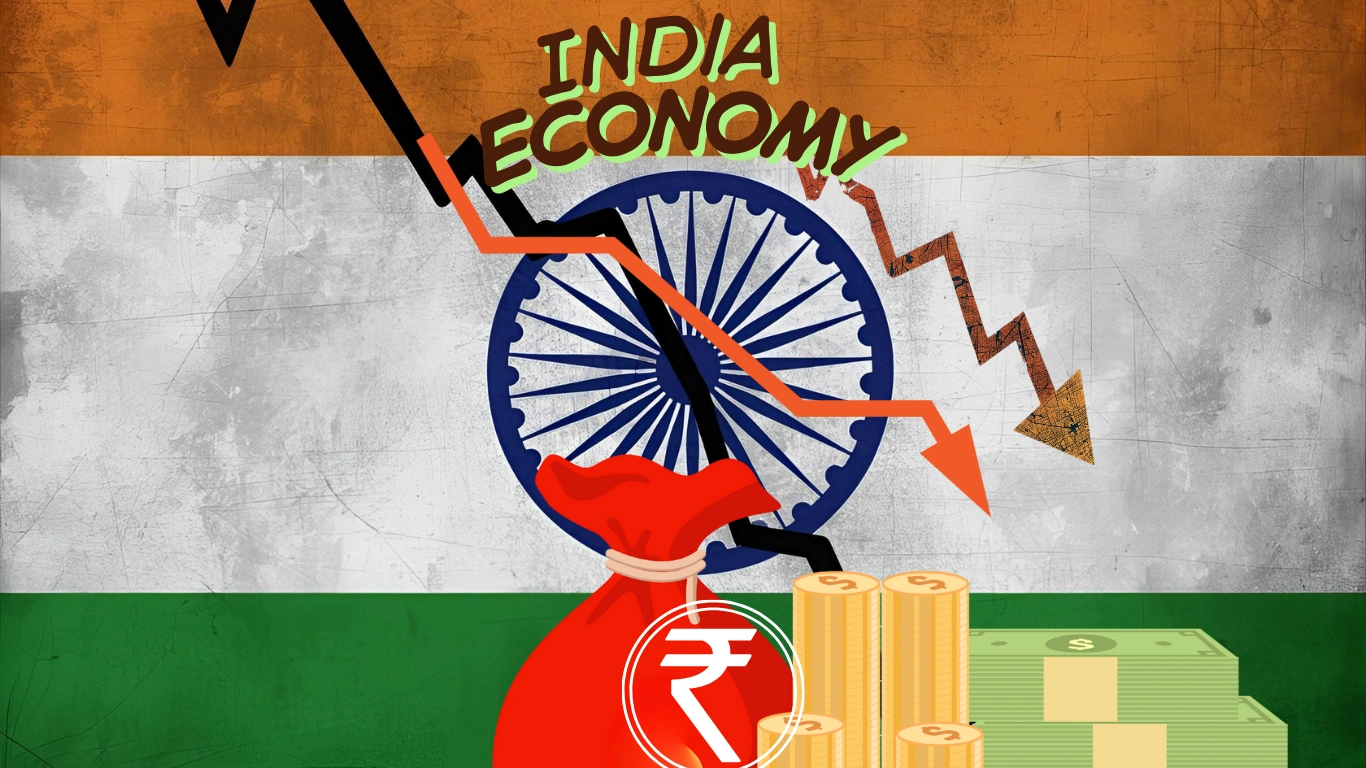First US, Now EU Sanctions Badly Hit Indian Economy

First US, Now EU Sanctions
Western Pressure Begins to Badly Hit Indian Economy
The economic strength of India begins to crush due to the United States (US) and European Union sanctions. Meanwhile, on Russian tied trades the Washington’s attacks now doubled up by Brussels and the joined Western crush is battering the vibrant energy veins of India. Furthermore, the mounting strain from West comes on the unique balancing act of India and as they are purchasing cheap crude of Russia to be met with its rising demands of energy. At the same time, they are demanding to for planned links with the powers of West. However, the double faced strategy is flopped and the susceptibilities in energy safety and opening the door to undecorated consequences of economy are exposed. Therefore, the disturbance of the consistent supply series of crude is more than supply problem it must bring risk for control in inflation, growth of industry and the aim to increase international power in the course of its difficult stage of progress.
A Main Battlefield
Nayara Energy is the private and significant refiner of India with important stake. Russian Rosneft are the owner of this Nayara Energy but they found there self in crosshairs of the outcome of sanction. In July 2025, the Russian tied businesses are aimed by European Union, Saudi Aramco and the SOMO of Iraq are the enduring suppliers of crude for Nayara, they entirely stop their shipments.
Once a month, Nayara usually hangs on two million Iraqi barrels of crude and one million Saudi barrels of crude. No solo shipment in August has arrived so the unexpected halt is the shocking point and may risks the refinery operations of Nayara and broader the energy stability of India.
The crushing depth of this is shown by statistics or figures. In line for the lack of crude, Nayara is forced to works on its refinery capacity at just 70-80%. India at the present time are having hunger for energy and facing quick consumer and industrial growth demand and may disrupt refinery predictions slowdowns and rising prices of fuel. The current effect will extent to many sectors, engaging inflationary stress on consumers and businesses, in that way intimidating economic stability at large.

Also Read : Unmasking the Myth of Indian Economic Supremacy
Dual Sanctions and Geopolitical Strains
Anything started as the effort of United States to punish the connected companies of Russia has changed into the harmonized Western Campaigns concerning the tariffs of America and European Union can strike the exports of India. The representatives and policymakers of India are facing the allegations of duplicity and are wearisome to uphold its links with the West and Russia both but harming the planned interests of West.
According to experts, the mutual agreements and tariffs planned for pressurizing the old suppliers and the worldwide shipping of India corporates into defiance and are limiting world’s most important and speedy growing economies at essential stage.

In Nayara, the drawbacks have initiated the internal disturbance because their topmost workers quit and the main contracts like Engineering, Procurement, and Construction were pulled out. For avoiding constraint on shipping, it resorted the dark fleet tankers and rising operational risks. Further, the business is more complicated when the important Information Technology service, mainly Microsoft Outlook and their teams in Europe were not in access.
Economic Vulnerabilities and Rising Risks for India
The chief weakness of economy, the energy import reliance of India been exposed. Due the disturbed supply series, fuel prices increasing and are further pressurized for controlling the rise to lessen the affordability of energy concentrated parts. The penalties are spreading away from the energy section the extensive economy. Professionals advise that if these compressions worsen, they could obstruct India’s determinations to stance as a noteworthy global power.
Pressures on Indian Exporter
In addition to the pressure or strain, the tariffs of United States on the goods of India have exaggerated. These tariffs may overwhelm the incomes of export and are affecting the important parts like pharmaceuticals, textiles and Information Technology. The worldwide trade flows are now redirect by these sanctions according to experts and are promoting states like China, Pakistan, and Vietnam but put aside India. Therefore, the double battering from the disturbed supply of energies and the halts in trade may threaten to weaken the extensive economic aspiration of India.

Also Read: US Tariffs on Indian Goods Double to 50pc Over Russian Oil Purchases
The contest of India is thoughtful and when met affordability of energy requirements, it has risen the import of oil from Russia. On the other hand, this stance is unsafe and are irritating the influences of West, who are keen sighted the moves of India as subverting agreements and their benefits of geopolitics. The delicate situation of the diplomacy of India contains the consistent security of energy, elasticity in economy, and the individuality of foreign policy between increasing pressure of Western. This complicated trouble demonstrate that by what means the economic contracts are suitable for the gadgets of contestation and transforming not just overwhelmed nations but also their companions.
The extensive, widespread budget and the vitality sectors of India are upsetting the joint settlements of United States (US) and European Union (EU).
Saudi Aramco and the SOMO of Iraq limit the consumption or purchasing on crude, showing India the urgent requisite to think once more about the import plans. The charges of fuels are increasing and refineries are reducing down, it must effecting the industry. The burdens from West are directing to bounds growth and increasing in geopolitics of India. It is recognizable that how India cross this crisis or disaster and decisively shape and figure the financial direction and the political positions for its impending time for external world.
Disclaimer: The views and opinions expressed in this article are exclusively those of the author and do not reflect the official stance, policies, or perspectives of the Platform.












